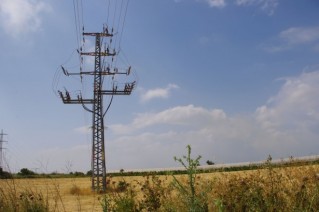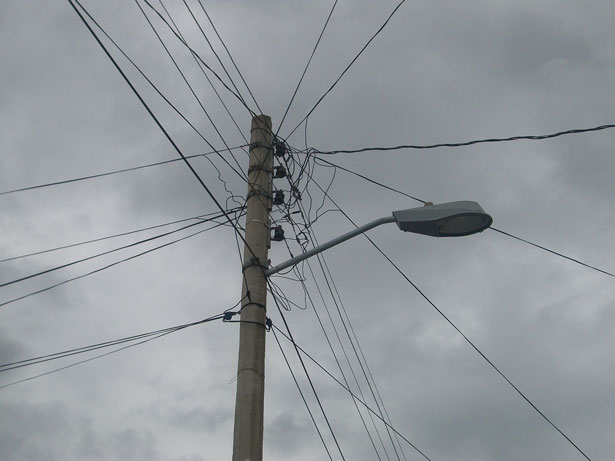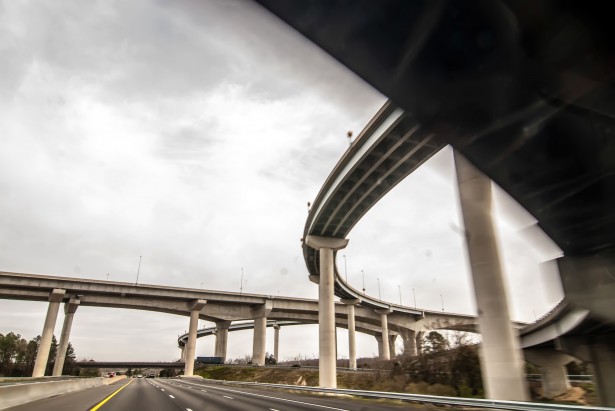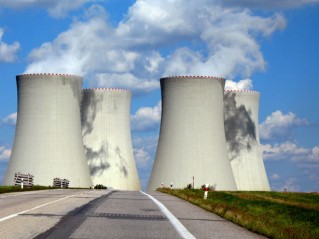Apparently I stuck my head in a hornets’ nest this week when I wrote on American Preppers Network about my concerns of radioactive rain since the Fukushima catastrophe. Within no time, comments were posted by two nuclear power advocates.
“William Zenk” immediately pointed out my concern of radioactive rain is far-fetched because of the enormous dilution involved. I hope he is right.
William said it is a misconception that radioactive materials with long half-lives are more dangerous than those with short half-lives. “An isotope with a half-life of 1 billion years,” he said, “has very little radioactivity.”
“Stephen B., Ph.D.,” who has dedicated his life to making the world a better place as far as energy/electricity is concerned, said nuclear power, compared to all other power sources per kWh, is the safest means of producing electricity known to man. He also briefly explained a new type of reactor – molten-salt reactors – for nuclear power that he says can actually be used to “burn the waste” produced by our current nuclear reactors.
I can only wonder why it has taken us 50 years to seriously focus on nuclear waste.
Stephen said he is part of a consortium of physicists and chemists pushing for the MSR, that “has been proven and is orders of magnitude safer” than reactors now in use. “We actually won the MIT Climate Co-Lab prize for our Thorium-based MSR solution,” he said.
I am not yet convinced of MSRs safety, but will read more about it. I doubt my opinion of nuclear power will be swayed, but have ordered some books to study. My mistrust of this new technology stems from years ago when we were assured by experts and the government of the safety of nuclear power. Perhaps statistically the accidents have been few – but catastrophic, nonetheless.
Considering more frequent natural disasters, Fukushima and Chernobyl are just the beginning of problems for our children. As long as natural and manmade disasters, human error and nuclear power coexist, radioactive debris will be in our future. Even with every safety protocol imaginable implemented, nuclear plants cannot be made strong enough to withstand all forces of nature. We hope mankind will still have time to learn to be good stewards of the Earth.
Meanwhile, I remember what life was like 40 to 50 years ago. Perhaps nostalgia has skewed my recollection, but I believe being outdoors did feel better than now and people were less stressed before technology took over our lives and polluted our world. It is not all the fault of nuclear power, of course, which is just one contributor to Earth’s uncertain future. Many factors exist.
From about 1940 to 1980 my grandparents owned an antique store in Green Bay, Wisconsin. As a child in the 1960s, I loved to marvel at the quaint gadgets there from yesteryear. Grandma rang up sales while Grandpa was in the back converting old kerosene lanterns and hanging oil lamps to electric lights. Apparently, no one wanted the lamps until they could plug them in to a wall socket and light up a room with a 60-watt bulb.
In our house, we still sharpened pencils with a paring knife and opened beans with a handheld can opener, but glossy advertisements showed us the dazzling array of products powered by electricity. All manner of appliances, tools, toys, office machines and kitchen knives, choppers, peelers and mixers went electric, as did tools for the yard and garden. Who can forget the Vegematic that slices and dices and makes julienne fries? But electric pencil sharpeners? Really?
As children, our Tinker Toys and Lincoln Logs were forgotten when we plugged in Creepy Crawler bug factories, Kenner Easy Bake ovens and Mattel race cars. We saw the start of the electric-toy era. What followed was even worse – electronic games.
In time, valuable self-sufficiency skills were lost and hand tools filled the town dump while consumers flocked to stores for contrivances to make life easier and more fun.
Recently my 70-something mother called around to her country neighbors for a scythe because she can no longer manage her heavy gas-powered weed-whacker. The only farmer she located who still had one in the barn said it was “too dangerous” for her to use. But a gas-powered machine that whips plastic string thick enough to cut down small trees is not?
My mother raised three kids in rural Wisconsin without a car, telephone, clothes dryer, color television or air-conditioning. She never has driven a car, but gradually after age 45 acquired the other luxuries. Now, if any of those are not working for whatever reason, she is scared and doesn’t know what to do. Like millions worldwide, my mother has become unhealthy, unhappy, and dependent upon technology.
Admittedly, I do fear the potential for large-scale disaster by the use of nuclear power and weapons. I am just as concerned about the massive amounts of toxic chemicals and other pollutants released into our environment and now injected into the earth through fracking. I worry about the finite natural resources we have dug and pumped and siphoned from below ground.
The unnatural emissions we cannot see, smell, hear or taste are particularly frightful. Besides radiation from a multitude of sources, our perpetual bombardment by radio waves cannot be good for our health or happiness.
With nearly 7.2 billion humans inhabiting this planet (more than twice as many since I was born), I realize we cannot turn back the clock. I believe our once-abundant and inexpensive fuel helped artificially raise the world population to this level. Manufacturers will continue putting motors on pencil sharpeners and weed-whackers and we will continue buying them until we have exhausted every source of power. We are like children, filling our faces with candy before someone else grabs it, without thought of cavities years in the future or what we will eat when the candy is gone. It tastes good so we keep on eating.
 I am not so naïve to think the world will stop producing nuclear power, burning coal, drilling for oil and now fracking to extract every ounce of fuel. We are hooked. In the early 1900s, oil tycoons and automobile manufacturers bought up railroad companies so they could dismantle the tracks, and then led us right to the new car lot. Our beautiful country is now crisscrossed with an ugly, veiny mass of asphalt highways and bridges. How could we resume riding trains after owning our own cars since we were teens?
I am not so naïve to think the world will stop producing nuclear power, burning coal, drilling for oil and now fracking to extract every ounce of fuel. We are hooked. In the early 1900s, oil tycoons and automobile manufacturers bought up railroad companies so they could dismantle the tracks, and then led us right to the new car lot. Our beautiful country is now crisscrossed with an ugly, veiny mass of asphalt highways and bridges. How could we resume riding trains after owning our own cars since we were teens?
Our personal practice here of relearning old skills and using human power whenever possible amounts to a drop in the ocean toward reducing carbon in the atmosphere, but we will continue and encourage others to do the same. Besides being physically and mentally invigorating, we are naturally more conservative when doing chores by hand. Americans use more than 100 gallons of water per day per person, a statistic that would quickly change if all that water was pumped by hand.
I am eagerly awaiting my books to arrive so I can learn more about nuclear energy. I will try to be as open-minded as possible. Wouldn’t it be nice if these nuke experts are right? We can party on.
© 2013 Well WaterBoy Products LLC ♦ WaterBuck Pump™ ♦ Pedal Powered PTO™


